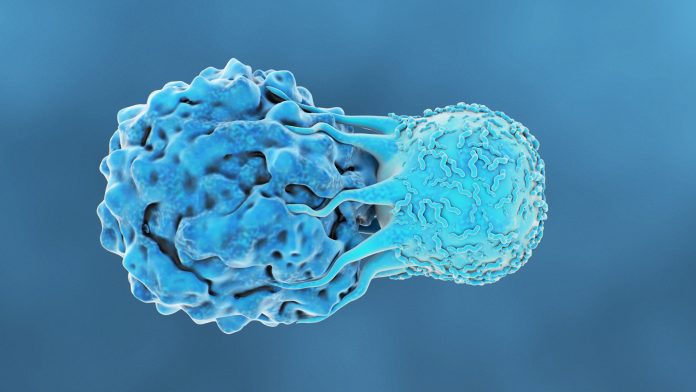
A research team from Germany has found that T cells play a pivotal role in the body’s immune response to viral infections.
There are 600 to 800 lymph nodes in the human body. These are specialised organs responsible for triggering an immune response in the body. Lymph nodes are connected to individual organs via lymph vessels, which are used to inform the body of an infection. The lymph vessels transport fluids and special immune cells, known as dendritic cells, from the lymph nodes to the organs. Dendritic cells carry information from the organs to the lymph nodes, passing the information to other immune cells.
A research team from Julius-Maximilians-Universität Würzburg (JMU) in Germany, has discovered that dendritic cells are not solely responsible for immune response. Dendritic cells, also known as ‘sentinel’ immune cells, are vital to maintaining and regulating the balance of the body’s immune response. Previous research carried out by JMU Professor of immunology, Wolfgang Kastenmüller, has identified the essential role of these cells in the treatment of cancer and severe viral infections. However, new research suggests dendritic cells are not the only important player in the body’s immune response.
T cells vital to immune response
The team, led by Professor Kastenmüller, found that unconventional T cells continuously migrate from the tissue into the lymph node affecting the body’s immune response. The discovery could have important consequences for vaccination strategy and immunotherapies against cancer.
“Each tissue in our body has different subtypes of unconventional T cells,” explained Wolfgang Kastenmüller. “Since these cells each migrate to the nearest lymph node, the individual lymph nodes also differ in the composition of the T cells. And that has a direct effect on the immune responses of the individual lymph nodes.”
This means that a lymph node informed about an infection in the lungs will trigger a different immune response to a lymph node that receives information from the intestine or the skin.
A new approach to vaccination?
A vaccination administered into the skin or muscle of a patient will always address the lymph nodes connected to the skin. However, a vaccine may provide a more effective immune response if it is administered near other lymph nodes. The same consideration can also be applied to immunotherapies against cancer.
“That is why we want to investigate next whether we can use the difference in lymph nodes to make vaccinations more efficient or to improve immunotherapies against cancer,” said Kastenmüller.
JMU’s research also raises the question of whether the difference in the lymph nodes can be actively influenced. Meanwhile, further research continues into the significance the findings may have on the development of autoimmune diseases and cancer.
The researcher’s findings have been published in the Immunity journal.
























